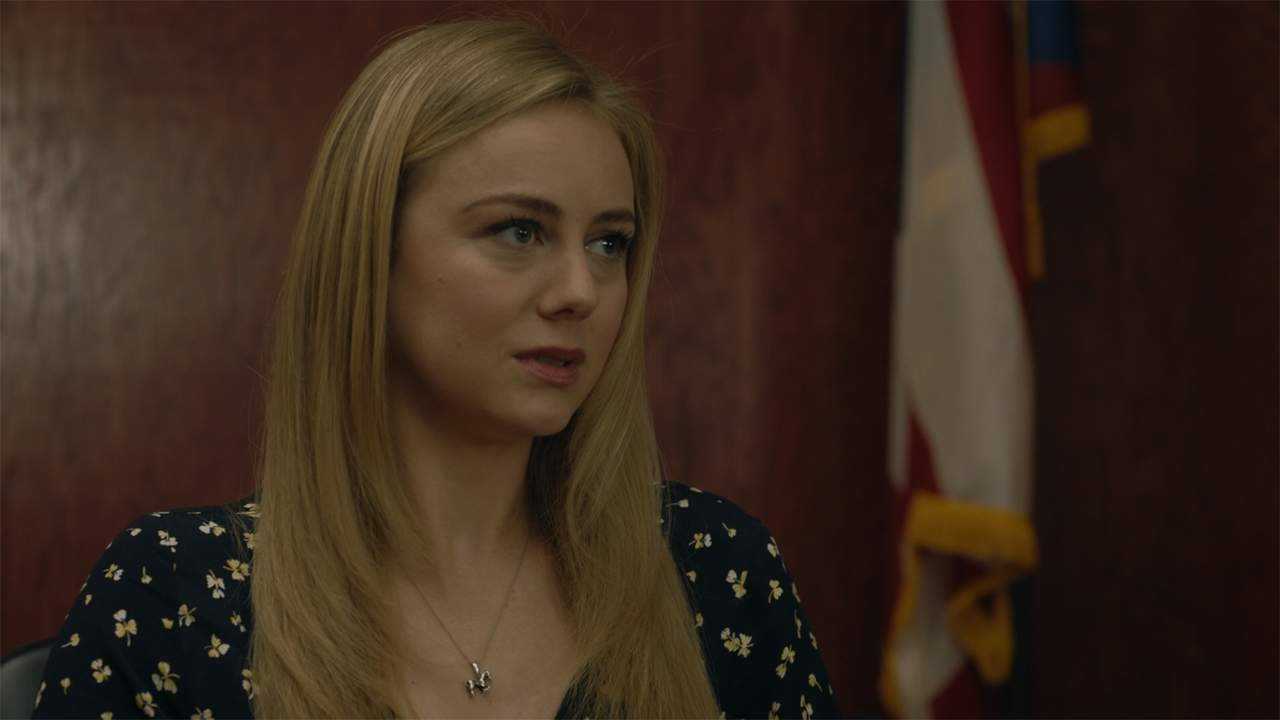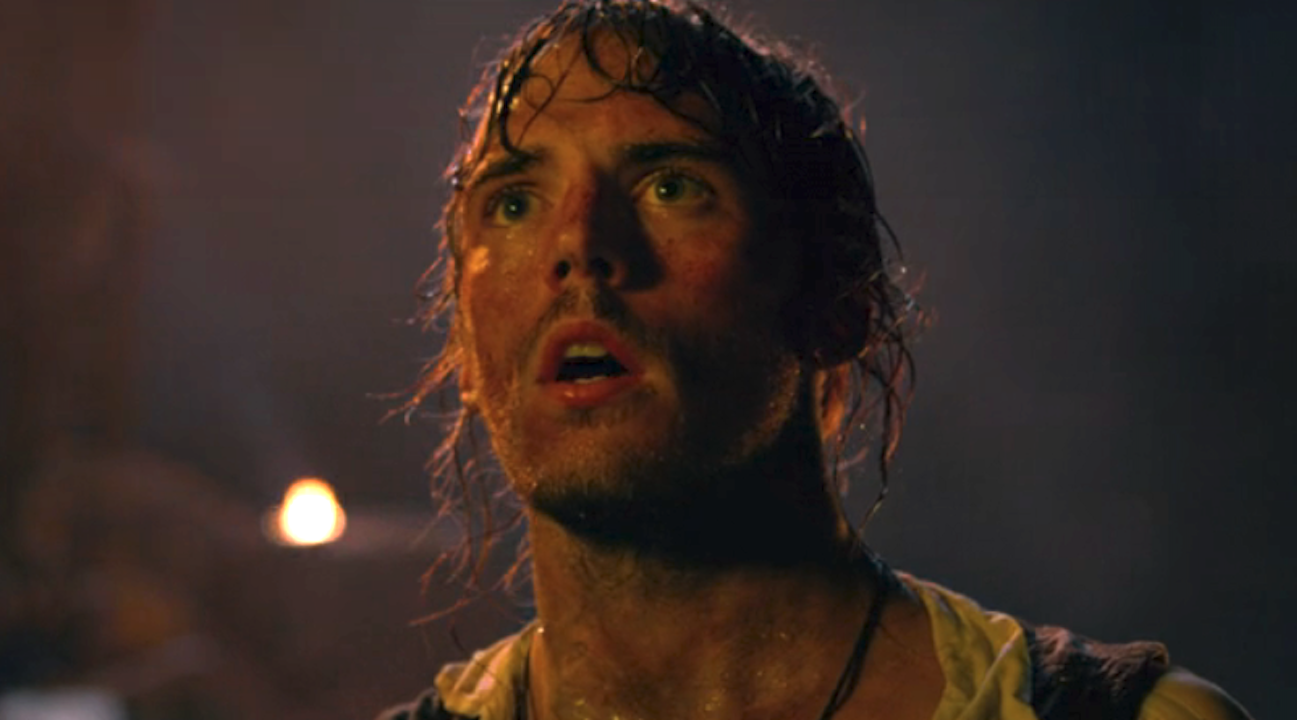Adapting Stephen King's Finders Keepers: Mr. Mercedes Season 3 Sticks The Landing Completing The Bill Hodges Trilogy
Mr. Mercedes is the best multi-season Stephen King television adaptation we’ve seen.

The filmmakers behind the Audience series Mr. Mercedes made an unconventional choice when it came to developing the show’s second season. Instead of following the map set out by Stephen King in the writing of what’s known as the Bill Hodges trilogy, showrunner David E. Kelley and the producers made the choice to skip from adapting the first book, Mr. Mercedes, to adapting the third book, End Of Watch – bypassing the middle story, Finders Keepers.
With no guarantees existing in the world of television, it was a logical move: End Of Watch completes the story of retired detective Bill Hodges’ battle with mass murderer Brady Hartsfield, and adapting the novel as Season 2 provided closure on the arc at a time when a future was not promised. The show certainly took advantage of the opportunity, with the finale featuring Lou Linklatter (Breeda Wool) shooting Brady (Harry Treadaway) in the head and killing him… but one month after that episode’s airing, Audience gave the green light to Season 3.
Ten more episodes were ordered, and Kelley, the producers, and the writers had options. With the changes made from the source material, Mr. Mercedes could tell a whole new story not based on the work of Stephen King, or the series could do some creative maneuverings to loop back and adapt Finders Keepers. Watching Mr. Mercedes Season 3, you glean that they decided to split the difference when cracking the story.
Half of Mr. Mercedes’ final batch of episodes is based on the story that Stephen King tells in the middle chapter of his detective fiction trilogy, but the other half is wholly original – playing out the aftermath of the events that transpire at the end of Season 2 (which, it must be noted, deviated greatly from End Of Watch). The end result is a strange brew to digest in this week’s Adapting Stephen King.

What Finders Keepers Is About
Finders Keepers is a surprising read in that Bill Hodges is relegated to a much smaller role compared to the character’s prominence in the novels that bookend it in the Bill Hodges trilogy (in fact, he doesn’t actually make his first appearance until page 157 in the first edition hardcover). We learn that Bill’s life has become much fuller since he caught Brady Hartsfield – most notably with the launch of a private detective firm co-owned by the odd-but-lovable Holly Gibney – and he ends up being an integral figure in the plot as everything comes to a head. However, the primary focus of the book is a criminal named Morrie Bellamy, a teenage boy named Pete Saubers, and a crime of obsession that ends up linking them.
Going back to the year 1978 (31 years before Brady Hartsfield drove a Mercedes into a line at a jobs fair), the novel begins as Morrie and two associates, Curtis Rogers and Freddy Dow, break into the home of reclusive author John Rothstein. While Curtis and Freddy are solely interested in the cash that the writer has, Morrie is a fanatic who has long resented Rothstein because of the way he ended a trilogy of books centering on a character named Jimmy Gold. Less interested in money, he wants to get his hands on rumored unpublished works written in notebooks that continue Jimmy’s story, and when he finds them, he ends up killing Rothstein as well as Curtis and Freddy.
When Morrie goes to an old friend and unscrupulous book seller named Andrew Halliday to tell him about the crime, he understands that having the notebooks is dangerous, and he makes the decision to stash them along with Rothstein’s money in a plastic-lined trunk that he buries on the property of his childhood home. Going out to a bar that night, he gets blackout drunk, and when he wakes up he is in a jail cell, having been arrested not for the Rothstein murder and robbery, but instead for rape, aggravated assault, and resisting arrest. After he pleads guilty, he is sentenced to life in prison, and the woman he violated testifies against his parole at every opportunity.
Your Daily Blend of Entertainment News
In 2010, while Morrie Bellamy is still in prison, Pete Saubers and his family end up moving into the criminal’s former home, and it’s shortly thereafter that he finds the buried trunk. Because his family is in dire straits, putting unyielding pressure on his parents’ marriage, Pete decides that he will start sending the cash to his parents anonymously in monthly installments.
Four years later, the Saubers are back on solid ground financially, but pressures arise again because Pete’s younger sister, Tina, wants to go to a private school with an expensive tuition. Wanting to do right by his sibling, and having discovered that the notebooks contain two unpublished Jimmy Gold novels, Pete starts to look into selling Rothstein’s work… and it’s the biggest mistake of his life. Not only does he make the poor choice of reaching out to Andrew Halliday to try and make the deal, but the timing coincides with Morrie finally getting out of prison, and he will stop at nothing to finally read the books he stole.

How Mr. Mercedes Season 3 Differs From Finders Keepers
In my column about Mr. Mercedes Season 2, I wrote about how relatively minor changes from the source material in Season 1 ended up becoming exponentially larger with the story’s continuation, and that holds true with what we see in Season 3 – particularly when it comes to Lou Linklatter. She has a much larger presence in Season 1 than her counterpart in the novel (whose name is Freddi), and the fact that she ends up getting stabbed by Brady Hartsfield wholly changed her arc compared to the events found in End Of Watch. That culminates, as mentioned, with her shooting the mass murderer in the face, and the consequences of that action lead to a completely original narrative for the show that sees Lou go on trial for Brady’s murder.
Even putting that material aside, Mr. Mercedes Season 3 still really only qualifies as a loose adaptation of Finders Keepers. The broad strokes are present, with Morris (Gabriel Ebert) killing John Rothstein (Bruce Dern) and the money and books ending up in the hands of Pete Saubers (Rarmian Newton), but just about every other principal plot detail is different – starting with the fact that the story’s timeline is compressed to unfold in a matter of weeks/months instead of decades.
In the show, Morris only has one partner (Greg Nappo), and Rothstein shoots him before Morris kills Rothstein. Instead of getting drunk and going to prison for years, he gets in a car accident while driving away from the crime scene, and he leaves both the money and notebooks in his crashed vehicle when he stumbles to the road looking for help from a stranger driving by. While Morris is hospitalized, Peter stumbles upon the car wreck and collects the illegal treasure.
Like in the book, Pete’s parents (Josh Daugherty, Claire Bronson) are experiencing money troubles, but one character the show wholly eliminates is Pete’s sister. This is a pretty big deal when you consider the fact that it’s Tina in Finders Keepers who connects the Pete/Morris plot to Bill Hodges: she is best friends with Jerome Robinson’s sister, Barbara, and Barbara convinces Tina to seek out Bill’s help when she starts to think that Pete is in trouble.
Instead of being linked to the case through Barbara, Bill Hodges (Brendan Gleeson) in the show is motivated by a personal love of John Rothstein’s books (he reveals that it’s the reason why he first moved to Bridgton, Ohio). His personal history with the writer motivates a passion to see his killer brought to justice, and in the journey he starts to analyze what Jimmy Gold meant to him as a literary figure and how the character and Rothstein’s anger impacted his personal worldview.
While Tina is taken out of the picture, two new characters that are introduced are Danielle Sweeney (Meg Steedle) and Alma Lane (Kate Mulgrew). The former is Morris’ girlfriend, and the latter is an older woman who took Morris’ virginity as a 13-year-old and has maintained a psychosexual hold on him ever since. Alma has a personal history with John Rothstein and a desire equal to Morris’ to acquire the rest of Jimmy Gold’s story.
As divergent as Mr. Mercedes Season 3 and Finder Keepers get, and it’s quite divergent, it is funny to note that the show does end up realigning with the source material as it gets to its conclusion and the final showdown between Pete and Morris –though it ends up being Pete’s mother who is kidnapped by the antagonist instead of Tina (for obvious reasons).

Is It Worthy Of The King?
As an interpretation of Finders Keepers, Mr. Mercedes Season 3 is serviceable. Alma Lane isn’t a great addition, as she is a bit too cartoonish a villain for what is otherwise a more tonally grounded show, and Morris doesn’t have the same horrifying, psychotic edge he has in the book; but Bill Hodges having a personal connection with Rothstein is a nice touch, and it’s compelling to watch the cat-and-mouse game between Pete and Morris play out and escalate.
That part of the story in the 10-episode arc is pretty basic… but what makes the show unique as a Stephen King adaptation is that it is otherwise elevated by its original storylines – specifically Lou Linklatter’s. The courtroom drama is a smart way to build on the plot developments of the previous two seasons, and the defense for the violent act of public vigilantism ends up being fascinating. It also has a great subtle touch when it comes to building on the hints of the supernatural from Season 2, with Lou being “possessed” by Brady (an excellent new dimension is added to Breeda Wool’s performance when she is channeling her former best friend/the man she killed.)
The arc also gives us what is perhaps the most emotionally powerful sequence featured in all three seasons of Mr. Mercedes, which is in the sixth episode, titled “Bad To Worse,” when Holly Gibney takes the stand in Lou’s defense. Justine Lupe instills the character with both vulnerability and tenacity that is hypnotizing to watch, and her performance affirms her as the show’s standout star – even in the incredible shadow of Brendan Gleeson.
Perhaps most importantly, Season 3 solidifies Mr. Mercedes as the best multi-season Stephen King television adaptation we’ve ever seen – sitting above USA’s The Dead Zone, Syfy’s Haven, CBS’ Under The Dome, and Hulu’s Castle Rock. It’s a special treatment of the Bill Hodges trilogy that any and all Constant Readers can appreciate, and as King continues to write stories about Holly Gibney, I’m still holding out hope that Justine Lupe will get future chances to reprise the role.

How To Watch Mr. Mercedes Season 3
There actually was a brief window of time when it was impossible to watch Mr. Mercedes Season 3, as it was not made available either online or in physical media when Audience ceased to be a network. Thankfully, that’s no longer the case – though options to watch are more limited compared to the first two seasons. You can’t purchase the episodes digitally, but you can watch them on streaming if you have a Peacock subscription. Those of you building the Ultimate Stephen King collection should note that your best bet is the region-free international complete series Blu-ray set, but there is also a domestic DVD.
Next week’s Adapting Stephen King will be found in CinemaBlend’s Streaming section, as I’ll be taking a look at the 2019 Shudder series Creepshow – specifically the first half of the premiere episode, which is based on the short story “Gray Matter” from 1978’s Night Shift. Look for the feature Wednesday, and discover all of my previous columns by clicking through the banners below.







Eric Eisenberg is the Assistant Managing Editor at CinemaBlend. After graduating Boston University and earning a bachelor’s degree in journalism, he took a part-time job as a staff writer for CinemaBlend, and after six months was offered the opportunity to move to Los Angeles and take on a newly created West Coast Editor position. Over a decade later, he's continuing to advance his interests and expertise. In addition to conducting filmmaker interviews and contributing to the news and feature content of the site, Eric also oversees the Movie Reviews section, writes the the weekend box office report (published Sundays), and is the site's resident Stephen King expert. He has two King-related columns.
